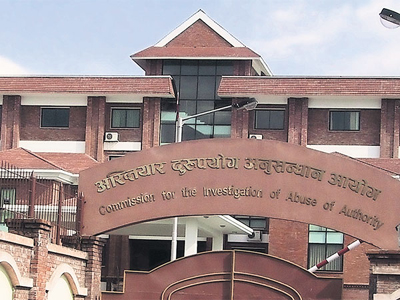Let parliament decide on statute of limitations for corruption cases: CIAA Chief Rai

Kathmandu / Aug. 15: The chief commissioner of the Commission for the Investigation of Abuse of Authority (CIAA), Prem Kumar Rai, has said that parliament should decide on the five-year statute of limitations for investigating corruption cases.
At a meeting of the State Affairs and Good Governance Committee under the House of Representatives (HoR) on Thursday, during the discussion on the bill to amend the Prevention of Corruption Act, 2002 (2059), Chief Commissioner Rai said that parliament has the right to decide on statute of limitations.
“It is said there would be a statute of limitations of five years for investigations into corruption cases. This provision is proposed for cases where no financial loss is incurred. However, there is no statute of limitations for damage to government property. Many experts have expressed their opinions on this matter. Therefore, it would be appropriate for parliament to come to a proper conclusion on this issue. We do not have any hard and fast rule regarding this,” he said.
The bill to amend the Prevention of Corruption Act, 2002 proposes a five-year statute of limitations for filing cases against certain corruption offenses, starting from the date the offense is discovered.
The parties are divided on this provision of the bill. The Nepali Congress and ruling alliance have been opposing the time limit saying that there should be no statute of limitations for the crime of corruption.
CIAA’s 10-points recommendation
Meanwhile, the CIAA has given a 10-point recommendation letter to the government. At the meeting of the State Affairs and Good Governance Committee on Thursday, the CIAA Chief Commissioner Rai forwarded the 10-point recommendations to the government.
In the recommendations, the CIAA proposes that if a public servant invests in real estate, business, or securities abroad, opens a bank account, invests in other areas, or becomes a shareholder, s/he should be punished.
